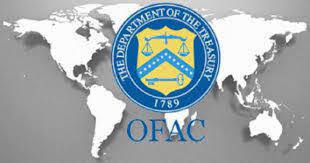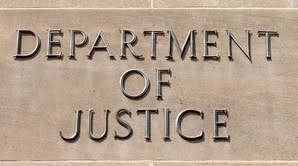Navigating DOJ and OFAC Voluntary Disclosures for Sanctions Violations

The Department of Justice is pushing its commitment to voluntary disclosure programs. Companies, however, are not lining up at DOJ’s door. The balance between sitting tight or voluntary disclosures requires care.
To complicate matters further, in certain cases, regulated companies have to face civil enforcement issues and coordinate voluntary disclosure programs offered by regulatory agencies. A perfect example of this dual track situation is compliance with economic trade sanctions.
Violations of a Department of Treasury’s Office of Foreign Asset Control’s (“OFAC’s”) sanctions program can trigger potential criminal prosecution by DOJ’s National Security Division and civil prosecution by OFAC. Both DOJ and OFAC encourage voluntary disclosure and offer benefits to companies that meet the voluntary disclosure requirement.
Under the two programs, and depending on the precise facts, a company may decide to file a voluntary disclosure with both the DOJ and OFAC, or just OFAC. The decision of whether to file with DOJ and OFAC. or just OFAC, turns on the specific analysis of company (and individual) intent.
In December 2019, DOJ’s National Security Division announced its own corporate enforcement policy applicable to companies that violate export controls or sanctions. DOJ emphasized that a voluntary disclosure to OFAC (or the Department of Commerce or Department of State) does not constitute a “voluntary disclosure” for purposes of DOJ’s policy.

DOJ encouraged companies to voluntarily disclose all potential willful violations of export controls and economic sanctions. “A person acts willfully if he [or she] acts . . . with the intent to do something the law forbids, that is, with the bad purpose to disobey or to disregard the law.” Bryan v. United States, 524 U.S. 184, 190 (1998). While “the person need not be aware of the specific law or rule that his [or her] conduct may be violating,” the person “must act with the intent to do something that the law forbids.” Ibid.
OFAC violations do not require a showing that the actor knew that the transaction violated the sanctions prohibition. A company is strictly liable for a violation of an OFAC sanctions program.
In the case of a third-party violator, a subject company may be held liable when the company had reason to know that the third party would engage in a transaction that violated an OFAC sanctions regulation.
However, under OFAC’s General Factors governing enforcement, the actor’s intent is weighed under a set of aggravating and mitigating circumstances. The list of aggravating circumstances includes the actor’s intent, i.e., whether a person acted willfully or recklessly. OFAC will impose a higher penalty when a person acts willfully or deliberately. If the person lacks knowledge but should have known, a lesser penalty may be imposed.
Given the DOJ and OFAC voluntary disclosure programs, companies have to undertake a careful analysis of the evidence surrounding the intent of the actors involved in a violation. In those cases where the evidence is equivocal as to willfulness, companies may disclose to both DOJ and OFAC. However, in those cases where there is no evidence of willfulness or deliberate conduct is absent, companies may voluntarily disclose only with OFAC.

In weighing these issues, it is important to recognize that DOJ emphasized that companies should voluntarily disclose potential “willful” violations. The tricky part is drawing the line where a “potential willful” violation exists.
Under DOJ’s voluntary disclosure program, companies that voluntarily disclose a sanctions violation, fully cooperate with DOJ’s investigation, and complete timely remediation, will earn a presumption for a non-prosecution agreement and will not pay a fine, in the absence of aggravating circumstances. DOJ defined aggravating factors to include exports of items that are particularly sensitive or to end users that raise heightened concerns; where the company engaged in repeated violations; where senior management is involved in the violation(s); and/or where the company earned a significant profit.
Companies that earn a non-prosecution agreement would still have to pay disgorgement equal to any illegal profits earned from the sanctions violation(s).
















1 Response
[…] Source link […]